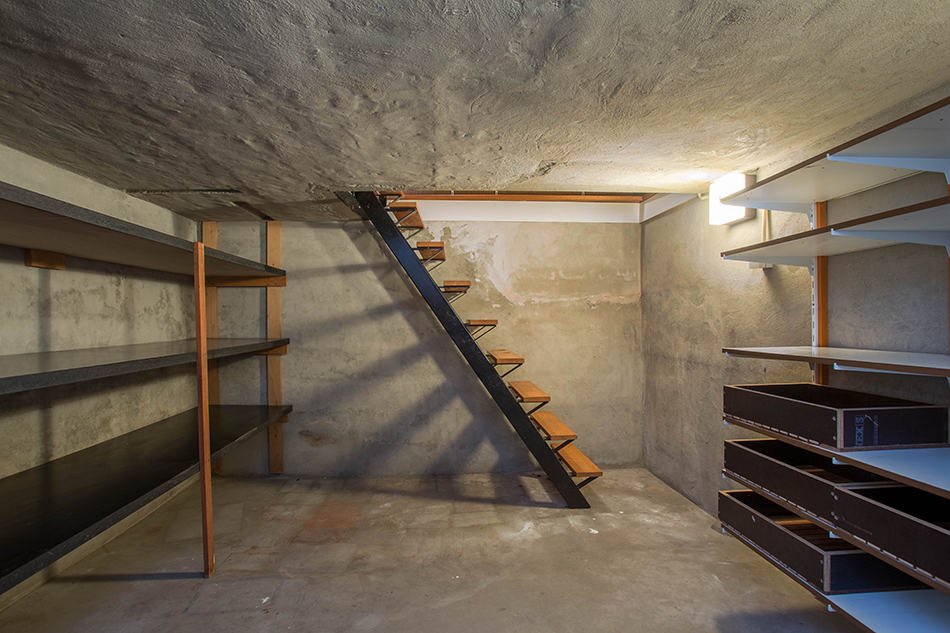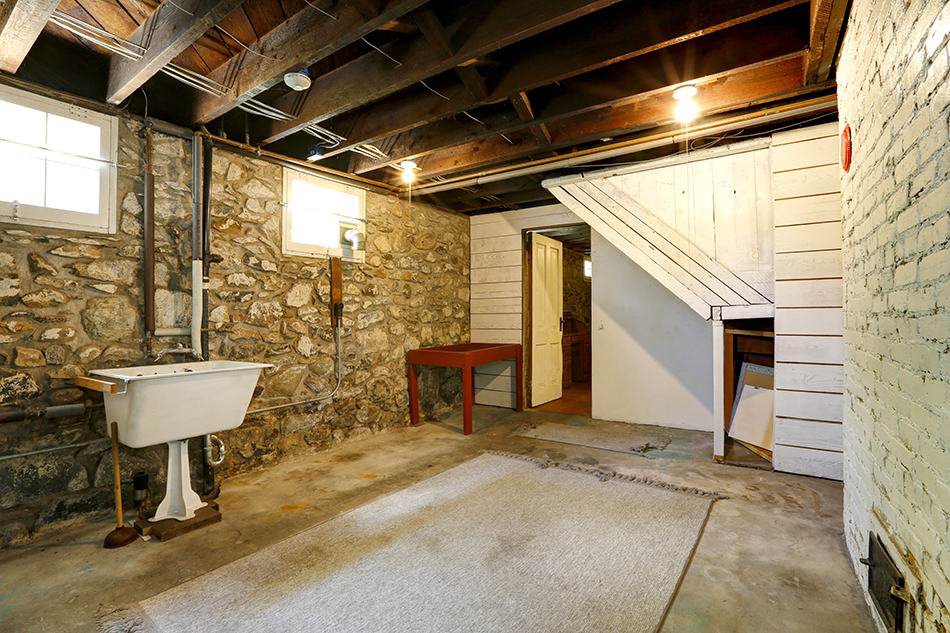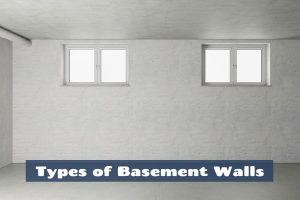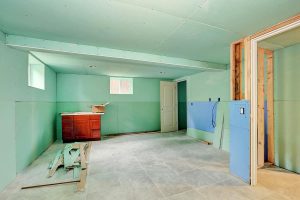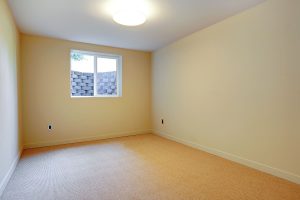Whether you’re constructing a new home or buying an existing house, it is vital that you consider the type of foundation. Remember, a foundation is necessary because it holds the house. Without it, the house may sink into the ground, resulting in cracks and damage.
Today, the most common type of foundation is a slab basement. So, what is a slab basement? Here are the important facts you need to know about this type of foundation.
What Is a Slab Basement?
A slab basement is a concrete basement used as a foundation beneath the house. Typically, this type of foundation is made with a concrete slab that is six to eight inches thick. Once the walls are constructed, the concrete slab is poured, creating a slab flooring. As such, a slab basement can also act as a basement flooring that supports your house.
Most homeowners opt for a slab basement because it requires the least amount of preparation, and it is easy to build. Additionally, this type of foundation is inexpensive because the floor of the house will sit directly on the concrete slab. As such, there is no need to build a floor support system.
Slab Basement Uses
There are various reasons to use a slab basement, including the following:
The house is close to groundwater – If the location of your home is near groundwater, it is best to build a slab basement. The reason is that digging and building another type of foundation over groundwater will only result in a permanently wet basement.
The soil doesn’t support basement construction – In some areas, the soil contains too much sand or clay, making it unstable. If this is the case, it is best to opt for a solid and stable slab basement. Remember, this type of foundation doesn’t require a floor support system that may get damaged due to unstable ground.
Cost – Building a foundation is expensive. As such, if you’re trying to reduce the cost of your construction, you can opt for the least expensive type of foundation, which is a slab basement.
Pros and Cons of a Slab Basement
A slab basement can offer several advantages and disadvantages, which include the following:
Pros:
- Low cost – As mentioned, a slab basement is the least expensive type of foundation because it only requires few materials. Plus, building this foundation is quick; thus, labor cost is also minimal.
- Quick and easy to install – A slab basement has a simple design. As such, it requires less preparationand materials. Also, its building time is quicker than other types of foundations
- No risk of flooding – Because a slab basement doesn’t have space below your house, there is norisk of flooding.
- Fewer steps – Homes with slab basements are built closer to the ground. For this reason, your house doesn’t need a lot of steps or stairs to gain access to the house. This feature is beneficial for disabled people because it allows them to enter your home with ease.
- Termite protection – A slab basement doesn’t have open spaces below the house. As such, termites and other pests won’t be able to access your home. However, termites and other pests can still enter your house if it has wood sidings that sit on the ground.
Cons:
- No additional space – A slab basement is only made of a concrete slab, so there is no space between the house and the foundation. For this reason, you don’t have additional living space that you can turn into a basement or a workshop.
- Cold floors– With a slab basement, the house is built directly on the concrete slab. As a result, there is little insulation, and your floors may feel colder. For this reason, you may need to spend more to make your home feel warmer.
- Need extra insulation – If you have a slab basement, the pipes and electrical wiring are under your house. There may be instances that they will become too hot, so you need extra insulation to regulate the heat.
- Minimal protection – If there are inclement weather conditions, a slab basement can only offer little-to-noprotection because there are no walls that can block the strong winds or rain.
- Expensive repairs – As mentioned, the pipes and wiring, including the plumbing system, of your house areplaced under the concrete slab. This can cause a problem if you need to repair your plumbing system because you need to break the concrete slab before you can gain access to the system. Doing this will surely cost you some time and money because you need to break the foundation and repair it afterward.
Other Slab Basement Alternatives
Crawlspace Foundation
In a crawlspace foundation, the house is supported off the ground by about two feet. As such, it has a shallow basement, but it is not deep enough to allow a person to stand up. Even so, an individual can still crawl into the allotted space if he needs access to the house’s ductwork, piping, and wiring.
A crawlspace foundation is usually the best option in areas with high moisture or water buildup. Supporting the house off the ground will prevent the water from damaging your home. Compared to a slab basement, another advantage of choosing a crawlspace foundation is that your floors will feel warmer.
A crawlspace foundation may cost a bit higher than a slab basement. Still, it is inexpensive to build because it only requires a little excavation. Moreover, you’ll also use a little concrete because it is only required in the stem wall and footing. Although a crawlspace foundation is less expensive than a basement foundation, their building time is almost the same.
Despite its many advantages, a crawlspace foundation can only offer minimal protection from inclement weather conditions. Additionally, molds and fungi can still grow in your foundation because of high moisture. For this reason, you need to regularly monitor your crawlspace foundation and remove the molds or fungi to prevent future damages.
Basement Foundations
A basement foundation is a popular type of foundation because of the added functionality it provides. To be specific, you can use a basement as a storage space, a recreation room, a workshop, or a bedroom.
A basement foundation uses the elements of a slab basement and a crawlspace foundation. To be specific, the flooring of a basement is a concrete slab. Additionally, it uses the same floor support system used in the crawlspace foundation.
In terms of cost, a basement foundation is the most expensive type of foundation. It requires a lot of labor and materials to excavate the site, pour the walls with concrete and set the concrete blocks. Aside from that, it will take a lot of time to build this type of foundation because it needs about two to three days to pour the concrete and a couple more days to let the concrete set.
A basement foundation can offer a lot of advantages. Aside from additional living space, this type of foundation can also protect from storms and other inclement weather. Additionally, if your pipes and wirings need repairs, a technician can easily repair them without additional charges.
As you can see, this type of foundation can offer a ton of benefits. However, it cannot be built on areas with unsettled soil or high moisture because it will only lead to flooding or damage to your foundation walls.
Aside from that, a basement foundation also lacks natural light. So, if you’re going to use it as a living space, you need to add artificial light into the room. Lastly, a basement foundation is prone to flooding; however, a remedy for this is to make drainage. This will allow the water to flow outside your foundation.
Cost of a Slab Basement
Monolithic Slab Basement
A monolithic slab basement is made of a single slab, and it has thicker edges. In this type of slab basement, the concrete is poured all at once, so the installation process is quick and easy.
Because a monolithic slab basement doesn’t require a lot of labor and materials, you can expect that it will cost about $5 per square foot. Based on that amount, the whole foundation will probably have a price range of $4,000 to $20,000, depending on the size of the foundation.
Stem Wall Slab Basement
If you’re going to build a house on a slope, it is best to opt for a stem wall slab foundation because the builder can design the various sections of the walls to match the grade of the house. Because of this feature, a stem wall slab basement is usually used in areas with unstable soil. Additionally, houses built on areas prone to earthquakes will also benefit from this type of foundation.
Typically, a stem wall slab foundation will cost around $6 per square foot, so an average foundation will cost between $7,000 to $20,000, depending on the size.
